The bill to eliminate the independence of anti-corruption agencies was drafted and passed within five hours. Meanwhile, defense companies have been waiting for major legislative changes to stimulate Ukrainian arms production for twelve years.
Mezha media investigates.
Attempts to address regulatory issues in weapons manufacturing have mostly been limited to targeted amendments to legislation and “experimental” government resolutions. Many of these played an important role in deregulating and simplifying rules for defense companies.
However, a truly comprehensive initiative – one that not only removes obstacles but also creates favorable conditions for the development of arms production – has only now emerged.
The new legal framework has been named Defence City (modeled after Diia City for the IT industry). Through this, lawmakers plan to introduce tax incentives, simplified customs procedures, a relocation mechanism, open access to global markets, restrict the publication of sensitive information about defense companies, and exempt certain types of offenses from liability.
As one source from the Ministry of Defense told Oboronka, the initial idea is to support “champion companies” — the largest arms manufacturers — by giving them the opportunity to fully realize their potential.
The new regime is to be implemented through four bills — No. 13420, 13421, 13422, and 13423 — which propose amendments to various codes: Tax, Customs, Budget, Criminal, and Criminal Procedure. Two of these have already passed their first reading in the Verkhovna Rada.
Armed associations interviewed by Oboronka unanimously support Defence City but warn that the initiative contains shortcomings that must be addressed before the second reading, to ensure that a good idea does not get lost in poor implementation.
What’s new for arms manufacturers?
Residents of Defence City will have the chance to solve most of the chronic problems that industry associations have been discussing for years. The main changes include:
First — the introduction of a special tax regime. Companies will be able to avoid paying profit tax on the condition that they reinvest these funds into production and refrain from paying dividends to owners (except in cases where the owner is the state). Additionally, arms manufacturers will be exempt from land, property, and environmental taxes without any additional conditions.
This provision is potentially aimed at addressing what arms manufacturers see as the problem of low profitability in defense sector companies, which need to invest increasing amounts each year in new developments, production expansion, and recovery after attacks.
Residents will be able to choose a convenient tax regime at any time. For example, a company may avoid paying profit tax for several years while actively investing in production development, scaling up, and later switch to the standard tax regime without investment or dividend payment obligations.
Second — simplification of customs procedures for imported components. This is expected to speed up formalities during customs clearance.
Third — for the first time since 2022, defense companies will receive a clear mechanism for selling weapons and technologies abroad. Arms manufacturers will need to obtain a special export license and pay a certain fee. This way, the benefits of exports will also support the Ukrainian army.
For the export of production technologies, the recipient abroad must be a company affiliated with the exporter. At the same time, the country receiving the technology must have an appropriate agreement with the Ministry of Defense.
Fourth — partial restriction of public data about companies. Defense associations complain that anyone can access YouControl and obtain information about the revenues and estimate the production scale growth of any defense company, or get data about its owners. The publication of certain sensitive information about Defence City residents will be suspended.
Fifth — a relocation mechanism to safer regions of Ukraine. This will be carried out by allocating part of the taxes from company employees’ salaries to the budget of the community that receives the enterprise and will build infrastructure for it.
Conceptually, this set of incentives should remove a significant number of “stoppers” for the Ukrainian defense industry. But the devil is in the details.
Rules for everyone or a “club of the chosen”?
The legal regime is planned to be available only to companies manually included in a list by the Ministry of Defense. Companies will be added to this list based on special criteria. For example, 90% of a company’s revenue must come from the sale or servicing of weapons for the Defense Forces. Additionally, the company must not have contracts overdue by more than 60 days and must not be a resident of other legal regimes, such as Diia City.
“The 90% revenue threshold from government contracts is unrealistic in some cases. And if a defense company operates in a civilian sector that accounts for 11% of its revenue, does it then stop being strategic? What if 30% of the company’s contracts come from charitable foundations that provide a significant part of the defense order?
Also, the list should include manufacturers of components for this weaponry. We cannot be strategically independent while relying on Chinese components,” said Serhiy Honcharov, Executive Director of the NAUDI association.
Associations “Technological Forces of Ukraine” and the Ukrainian Council of Defence Industry propose lowering the required percentage of “defense” revenue and extending the criteria to include manufacturers of dual-use goods, not just end products.
The issue of applying the new rules to as many defense companies as possible is one of the most pressing in the development of this reform. Arms manufacturers interviewed by “Oboronka” agree that the criteria should be transparent, and market rules should be equal for all participants, not just for a closed “club of the chosen.”
Another problem, according to Technological Forces of Ukraine, is the inability of companies that are already residents of Diia City to join Defence City. This especially affects drone manufacturers. “It is important to preserve the possibility for defense companies to be in both regimes. Otherwise, they will have to separate R&D centers and production enterprises. This is simply unnecessary bureaucracy and market restriction,” said Technological Forces of Ukraine Executive Director Kateryna Mykhalko.
A source from the Ministry of Defense, speaking to “Oboronka,” explained that the 90% revenue requirement is not final. It is possible that in the final version of the bill, the figure will be reduced. Additionally, meetings are seeking possible compromises to synchronize Defence City with Diia City. One option is to allow companies to be in both regimes simultaneously and to choose the most convenient tax regime for themselves.
Protection from law enforcement or amnesty for corrupt officials?
The most problematic part of Defence City turned out to be the section that proposed amendments to the Criminal Code.
Residents of Defence City were to be shielded from pressure by law enforcement agencies, which allegedly might abuse their power, disrupt production, and gain access to sensitive data during searches. The controversial NABU searches at the thermal imaging device manufacturer Archer are often mentioned in this context.
One of the bill’s initiators, Danylo Hetmantsev, said on the “Economic Truth” podcast that the goal was also to exempt arms manufacturers from liability for minor offenses, such as non-compliance with environmental regulations, labor law violations, improper equipment use, and so forth.
To implement this idea, two key innovations were proposed. First, all procedural actions against Defence City residents must be approved by the Prosecutor General. Second, a company’s actions will not be considered violations if they were committed to strengthen the country’s defense potential and did not pose a threat to life or cause an environmental disaster.
If you carefully read the second provision, an immediate question arises: how will the court determine that a company contributed to the country’s defense capability while committing a particular violation? Among arms manufacturers, there is even a joke: “I was forced to bribe an official because otherwise, I wouldn’t have gotten the contract and wouldn’t have been able to strengthen the country’s defense.”
The corruption risks embedded in the bill outraged part of society, and the Ministry of Defense and deputies had to justify themselves to the ambassadors of the G7 countries at a separate meeting afterward.
A vote on the “criminal” part of Defence City in its current form could have effectively buried the entire initiative in the eyes of partners and society. Therefore, the deputies decided to postpone it, not even approving it for the first reading.
Currently, the initiators have registered a new bill in Parliament. It removes the controversial provision on exemption from liability for violations but keeps the part requiring that all cases against arms manufacturers must be approved by the Prosecutor General. This too raises concerns among anti-corruption activists due to the potential politicization of investigations or their complete absence.
Regarding the three adopted bills, the only question is how to finalize them. But the fourth bill, even in its new version, is outright bad. This bill simply needs to be discarded.
Many arms manufacturers are genuinely afraid of facing criminal prosecution. However, our deputies are reluctant to hire skilled lawyers who could embed protections for these companies into various codes and clearly define exceptions to prevent destabilizing other processes and regulations. This is an office of simple solutions, — said Tetiana Nikolaienko, a representative of the Public Anti-Corruption Council under the Ministry of Defense, to “Oboronka.”
Overall, the idea of centralizing as many processes as possible under the Prosecutor General fits the general logic of the “monomajority” deputies, which we saw with the stripping of independence from NABU and SAPO. Therefore, discussions on this issue are likely to continue.
Exports with nuances
When talking about arms exports, a few risks to the state are usually mentioned. The first is reputational — Ukraine is seen as asking for weapons on one hand, while selling them on the other. The second risk is that the state will be forced to compete for the capacities of domestic enterprises with much wealthier foreign players. The third risk is the potential leakage of technology to unfriendly countries.
At least on paper, the proposed Defence City export format seems designed to address these issues. Reputational losses will be minimized by framing arms exports as “joint production with partners and mutually beneficial technology exchange.” As for competing capacities of domestic manufacturers, it won’t be necessary since the Ministry of Defense will solely issue export licenses for surplus products that it cannot purchase.
To prevent weapons from falling into the wrong hands, the state will have the authority to issue permits only to countries it considers safe. The mandatory licensing fee paid by arms exporters will be directed to the needs of the Defense Forces, providing significant financial benefit to the military and legitimizing the idea of arms exports among the armed forces.
Questions arise only regarding the provision that regulates the transfer of production technologies abroad. This is allowed only if the recipient of the technology is a foreign company fully (100%) owned by the exporter. In other words, military technologies can only be transferred abroad to oneself.
The problem is that this rule makes it impossible to transfer technologies to joint ventures that Ukrainian companies establish together with European partners. Some countries simply do not allow arms manufacturers to operate unless they share production with a local company. In its current wording, the provision significantly narrows opportunities on the global market.
On the other hand, some Ukrainian defense companies are already effectively transferring their technologies abroad, which later end up in joint ventures producing drones and armored vehicles with European companies. So it seems that, in practice, a loophole for transferring Ukrainian technologies already exists. The question is only how legal this currently is.
Investment control
Residents of Defence City will have the opportunity to avoid paying corporate income tax in exchange for foregoing dividend payments and reinvesting those funds into the purchase, modernization, and repair of machinery, premises, construction of new workshops, employee training, and generally everything that falls under the definition of “investment in development.”
This will provide honest manufacturers with additional resources to scale up and develop technologies. At the same time, it opens space for unscrupulous managers.
The hope is that the state will be able to ensure effective oversight over producers benefiting from this tax privilege. After all, “investments” can be used to disguise purchases of machinery, services, or intellectual property assets at inflated prices, which can then lead to fund embezzlement.
Since the global defense market is very dynamic and monopolized in many segments, determining “market prices” for certain goods and spotting suspicious activities in declarations will be quite a challenging task.
Overall, defense associations interviewed by “Oboronka” characterize the discussion around Defence City as adequate. Weapons manufacturers, the Ministry of Defense, and deputies occasionally meet to share their proposals and concerns, gradually preparing the provisions for the second reading. According to the plan, the second reading is scheduled to take place in the second half of August, after the Verkhovna Rada’s recess.
Tags: arms industry biggest overhaul Defence City EMPR.media Ukraine defence reform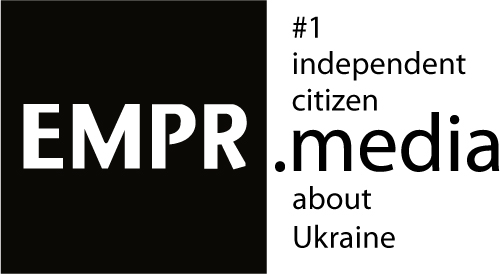



![The Kyiv Instytutska Street massacre during the Maidan Revolution of Dignity, where Berkut’s “Black Company” shot and killed unarmed protesters. :contentReference[oaicite:2]{index=2}](https://empr.media/wp-content/uploads/2026/02/photo-1-480x270.png)







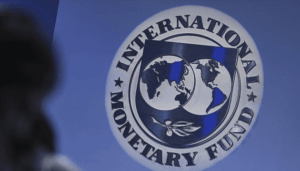
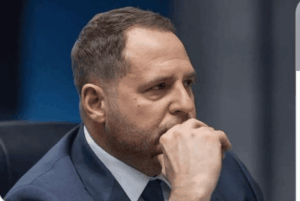
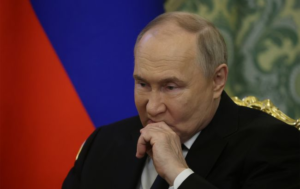


![Visitors at the “Thank You With All My Heart” Ukrainian exhibition at the Council of Europe, featuring the Great Amber Heart and powerful war art. :contentReference[oaicite:2]{index=2}](https://empr.media/wp-content/uploads/2026/02/heart-300x171.png)


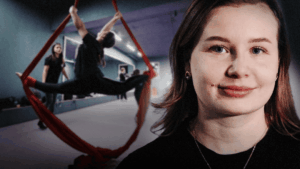
![Ukrainian Roboneers and Latvian partners at the signing of a defence robotics and underwater technology cooperation memorandum. :contentReference[oaicite:2]{index=2}](https://empr.media/wp-content/uploads/2026/02/oboronka-300x168.png)